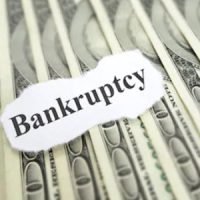How Does Bankruptcy Affect My Security Clearance?

Bankruptcy discrimination, or making decisions based on a bankruptcy filing, is illegal. However, some financial problems are a legitimate concern. But the financial problems that cause bankruptcy filings rarely fall into this category. Furthermore, when debtors face their financial issues and file bankruptcy, good things normally happen, especially in terms of a security clearance. So, bankruptcy filings affect security clearances, but in a good way, not a bad way.
Bankruptcy doesn’t magically cure financial problems or end security clearance concerns. Only a Chicago bankruptcy lawyer maximizes the benefits of bankruptcy filings and minimizes their negative consequences. An experienced Chicago bankruptcy lawyer maximizes these benefits even further. In this post, we’ll examine the ways the different kinds of consumer bankruptcy could affect your security clearance.
Chapter 7
Debt discharge may be the leading benefit of Chapter 7 bankruptcy, especially if the debtor has security clearance issues. Debt discharge (forgiveness) often eliminates the debts, such as credit cards or medical bills, that prompted the bankruptcy filing. In other words, bankruptcy strikes at the root of the problem, making the tree more fruitful and the debtor a better security risk.
Frequently, the Chapter 7 process requires less than nine months. About six weeks after debtors file their voluntary petitions, they meet with trustees (people who manage bankruptcies for judges). The trustee verifies the debtor’s identity, sans financial documents to look for bankruptcy fraud red flags, and asks a few scripted yes/no questions.
Financial discharge means financial freedom. Instead of paying hundreds of dollars a month to service credit cards and other unsecured debts, these families can shift that money elsewhere and pay the bills they want and need to pay.
Perhaps most importantly, Chapter 7 debtors acknowledge their financial issues, take the bull by the horns, and address their issues. Rep[eated charge-offs, late payments, and other negative information, which is the alternative ,indicate that the debtor rolled over and quit.
On an important side note, the financial problems that lead to bankruptcy include job loss, divorce, high medical bills, and other situations mostly beyond the debtor’s control. These financial problems are far different from fraud, gambling, and other financial issues that cause security clearance issues.
Chapter 13
If security clearance issues are a significant concern, Chapter 13 may be a better option than Chapter 7. Chapter 13 offers all the benefits of Chapter 7, and more.
The Automatic Stay is available in both chapter 7 and chapter 13 bankruptcies. Section 362 of the Bankruptcy Code prohibits most creditor adverse actions, such as:
- Eviction,
- Creditor lawsuits,
- Foreclosure,
- Creditor harassment, and
- Repossession.
The Automatic Stay also applies to security clearance adverse actions. If the government wants to restrict your security clearance for financial or any other reason, a Chapter 13 filing stops those proceedings in their tracks. The DoD may only take official action if the judge grants special permission. Otherwise, the DoD must wait until the judge loses the ase. That delay gives a Chicago bankruptcy lawyer ample time to prepare a defense.
Chapter 13 may be a better option than Chapter 7 because Chapter 13 debtors repay secured debt arrearage, such as delinquent house or car payments. Debt repayment is a mitigating circumstance according to DoD regulations.
Work With a Detail-Oriented Cook County Lawyer
No matter what kind of financial problem you are having, there’s a way out. For a free consultation with an experienced bankruptcy attorney in Chicago, contact the Bentz Holguin Law Firm, LLC. We routinely handle matters throughout the Prairie State.
Source:
law.cornell.edu/uscode/text/11/525
